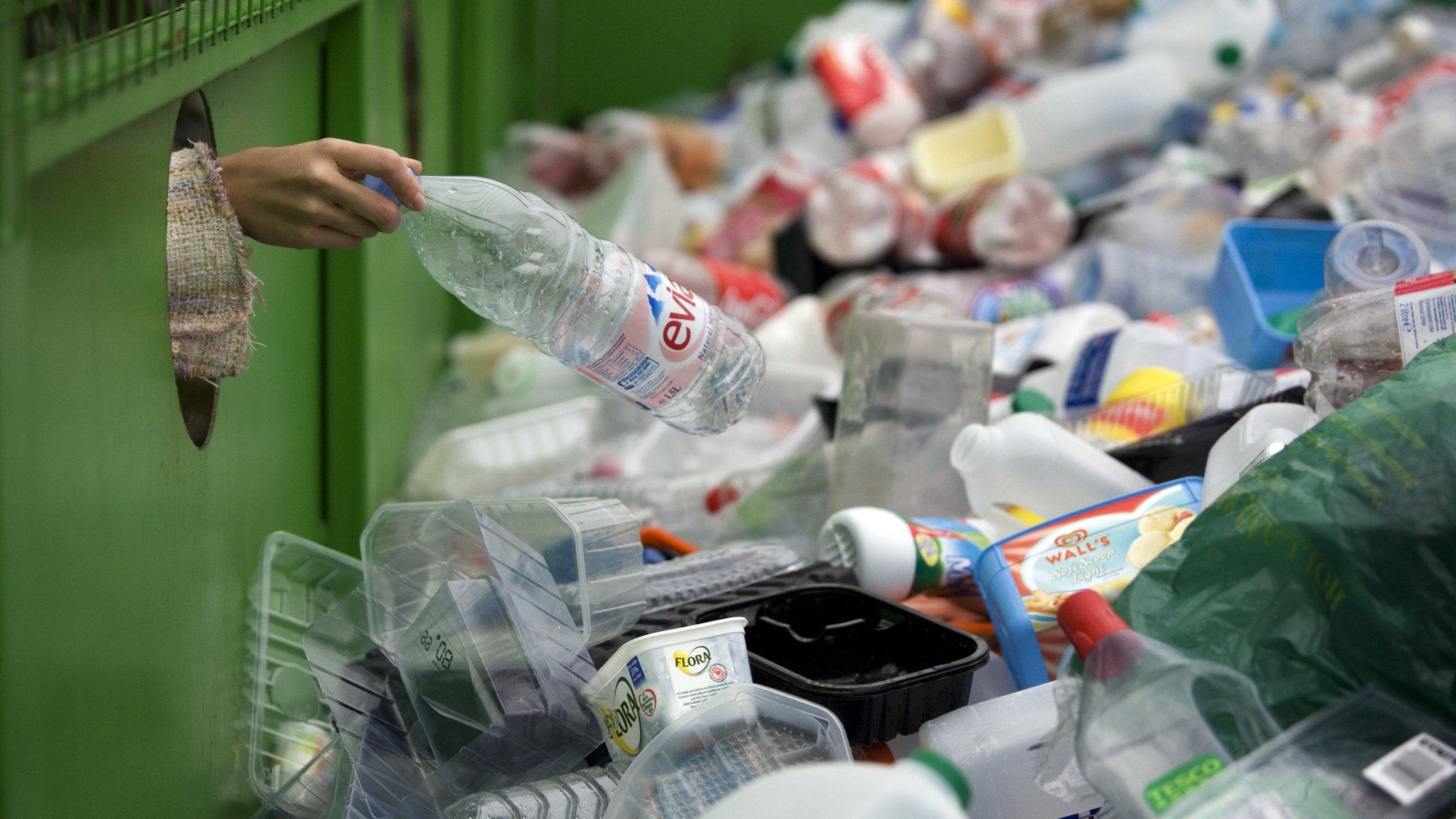Deposit return scheme: Wales brewers fear for industry
- Published
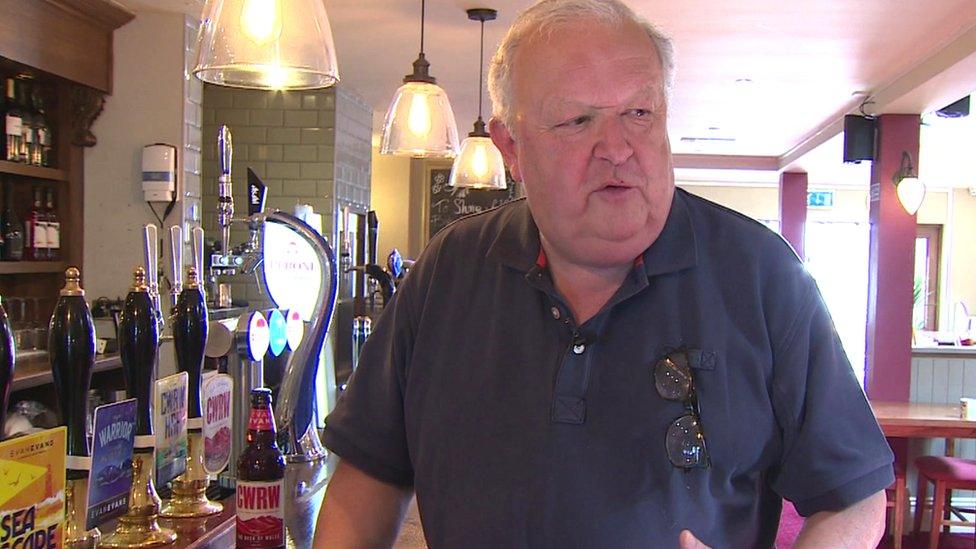
"It's more people doing a job for which there is no financial gain," says Simon Buckley, of Evan Evans Brewery
Breweries in Wales have claimed plans for a refundable bottles and cans fee will harm their industry.
Climate Change Minister Julie James has indicated she will go ahead with proposals to introduce a deposit return scheme in Wales, including glass.
It aims to increase recycling rates by charging a deposit for single-use containers like plastic bottles and aluminium cans which can be reclaimed.
But the chairman of Brewers of Wales said it would disadvantage them.
Similar plans in Scotland have been postponed.
The deposit could be reclaimed when the item was returned to a shop or reverse vending machine. Wales and England were planning a joint scheme whereby bottles bought in Bristol, for example, could be returned in Bridgend, or vice versa.
But the UK government decided not to include glass in its scheme after consultation.
Simon Buckley, of Evan Evans Brewery, based in Llandeilo, Carmarthenshire, said it would mean more bureaucracy if the Welsh government pressed ahead.

Evan Evans Brewery says it would be instantly put at a disadvantage against larger companies
"It's more people doing a job for which there is no financial gain. And what I would say is that it instantly puts us as a brewer here in Wales at a disadvantage to the bigger brewers."
If the UK government decides not to include glass in its scheme for England, then the rules of the Internal Market Act mean that the scheme in Wales would only apply to goods produced in Wales or imported directly into it, like Evan Evans.
He said brewers were also concerned about the practicality of the scheme.
"If we're suddenly going to impose upon them what is, in effect, a regulatory fine of 20p per bottle, then they have to fund that, " he said.
'Nightmare scenario'
"We don't know how that's going to work. How quickly the cash will come back into the system."
He also feared a "nightmare scenario" where somebody could arrive at his brewery and "demand that I refund them for, say, 1,000 bottles of which only 10 may be mine".
Andrew RT Davies, leader of the Senedd Conservatives, said the Welsh government was trying to score political points against the UK government.
"Clearly, the Welsh Labour government are trying to create a political argument," said Mr Davies.
"Of course it makes sense that we have consistency across the whole of the United Kingdom.
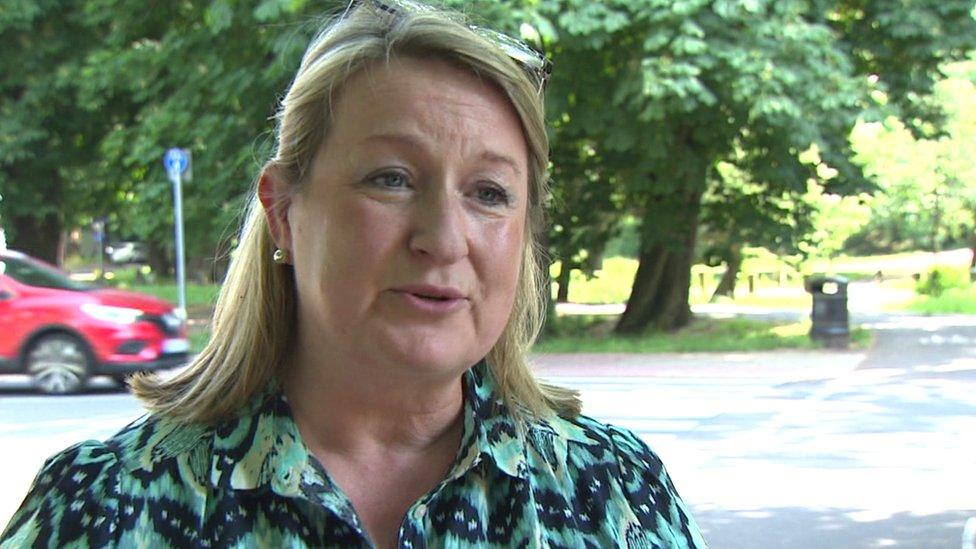
"It is absolutely vital that it is a clear and simple message," says Jo Golley of Keep Wales Tidy
"Goods are transported and traded right the way across the whole of the UK. And by creating this inconsistency, the Welsh government are looking to discriminate and actually shut down many small successful Welsh businesses."
However, according to Keep Wales Tidy's Jo Golley, the Welsh government is right to include glass as a clear message which will help the public understand and take part in the scheme.
She said: "It is absolutely vital that it is a clear and simple message and a simple one to be able to follow: any time you buy a drink in a single-use plastic, aluminium can or whatever you can take it back and that there is the money back on that.
"It stops that waste, it stops that litter, and it just makes people start to think differently. Not just about drinks bottles, but about all of the packaging that they're using."
'England is the outlier here'
On last week's BBC Politics Wales programme, the climate change minister said she would take the UK government "to task".
She said "a reading of the UK Internal Markets Act will tell you that no one nation can interrupt the commerce of another. Well, it's England that's the outlier here and I think they need to understand that."
Jess Sargeant, of the Institute for Government think tank, said it was no surprise that Scotland and Wales were challenging the UK government on this, as they were both unhappy with the Internal Market Act from the start as it undermined their devolved authority.
"There are two routes: there's the political route to try and persuade the the UK government to grant an exemption, or there's the legal route to challenge the legal basis of the act in the first place," she said.
The Welsh government has not indicated whether it pursues the legal route yet, but after Scotland decided to pause its plans after the UK government's intervention, Ms James said her plans had not changed.
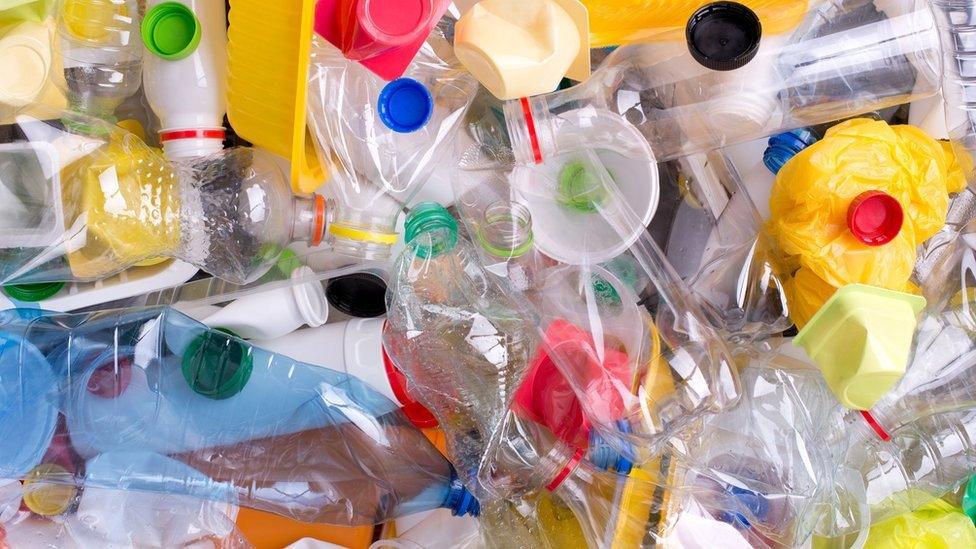
The Welsh government is aiming for a 70% recycling rate by 2024-2025
Legally, she can continue, according to Ms Sargeant. But she questioned the effectiveness of the scheme if it only applied in Wales.
"There's nothing in the UK Internal Market Act that would stop the Welsh government from introducing rules that are different to England or how or which goods can be sold," said Ms Sargeant.
"But what the UK Internal Market. Act means is that those rules will only apply to goods produced or imported directly into Wales. Which means that goods that are produced in England and then sold in Wales won't have to meet the same requirements.
"So while the Welsh government can go ahead and introduce the scheme (and), they can pass legislation to implement it, there's a big question about whether it will actually be effective because those new rules might not apply to the vast majority of goods sold in in Wales."
BBC Wales understands that the Welsh government is not considering legal action, but is reviewing the implications of the UK government's decision in relation to Scotland.
- Published11 May 2022
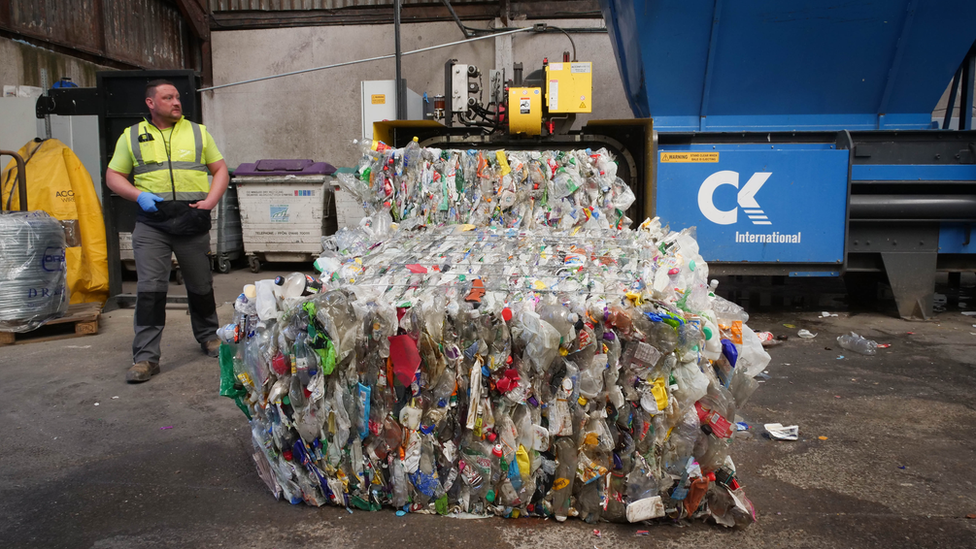
- Published7 June 2023
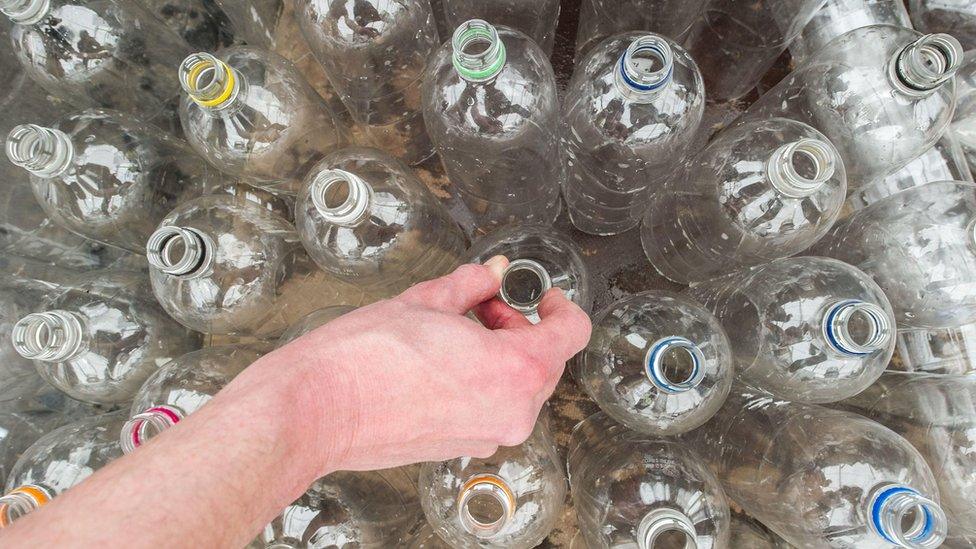
- Published15 December 2021
